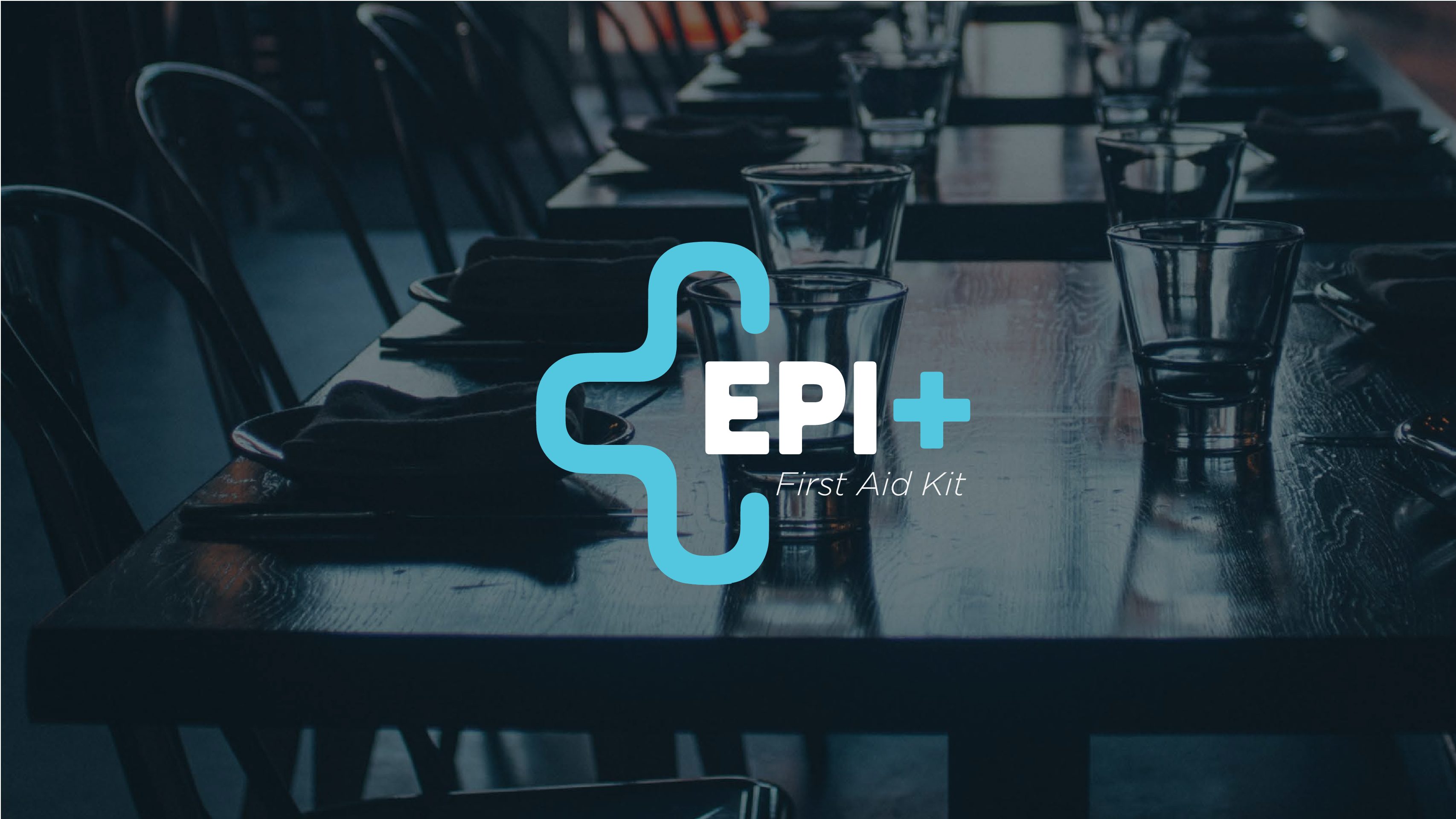
The Problem
If restaurants and other food establishments stocked epinephrine auto-injectors and trained their staff to be proactive and administer the medication, the number of fatal reactions would decrease exponentially.
How can restaurant employees increase their knowledge of life-threatening allergy prevention and techniques to take action in the event of administering an Epi-Pen?
Success Statement
While Epi+ is currently a prototype, the use and application of Epi + in restaurants received positive feedback with hopes of actual integration in the future.
Target Audience
Restaurant staff that are required to go through extensive allergy and action training to ensure the safety and comfortability of all patrons.
Research
41% of restaurants in the greater Cincinnati area agreed to answer and discuss a myriad of questions regarding staff knowledge of food allergies and what their comfortability levels would be in the event of an emergency.
The outcome of conducting this research solidified the need to increase staff knowledge and awareness of food allergens and help restaurants better accommodate patrons and create a safe dining experience with well trained and well-equipped staff.
From 41% restaurant participation, the following data occurred. 80% of staff members reported confidence in their food hygiene training. Staff had specific confidence in their ability to clean cooking utensils as well as their hands in the event that an allergy request was given. 27% reported specific food allergy training, in regard to responding in the event of a patron having a reaction. 58% could name three or more food allergens that are common in a restaurant setting. 81% reported confidence in relaying a message back to the chef to provide a safe meal to a food-allergic customer.
This data, while not as extensive, helped formulate the idea that patrons that dine in with allergies are on the safer side. However, when expounding upon their knowledge within the aforementioned questions, the data was quite the opposite.
When asking a compilation of true and false questions, there was a rise in misunderstandings regarding allergy prevention techniques. 31% of staff believed that an individual experiencing a severe reaction should drink water to dilute the allergen; 21% thought that consuming small amounts of the allergen was safe; 24% thought removing an allergen from a finished meal would make it safe; 12% believed that cooking food eliminates the antigen; 13% were unaware that food allergies could cause death; 37% were unaware of what an Epi-Pen was and how to use it; 11% were confident that their reaction time and general knowledge would take over in the event of an emergency. 87% expressed interest in further training for food allergy prevention and liked the idea of implementing an epi-pen into the first aid kit.
The responses received solidified the impact of current food allergy training practice for restaurant staff and support the need for more rigorous and accessible training. Food allergies are a serious food safety issue. Restaurants should ensure that all staff members are knowledgeable about food allergies, from preventing cross-contact to knowing how to respond in an emergency. Investing in and using dedicated equipment and designating areas for preparing allergen-free food can also reduce the risk for cross-contact. Increasing staff knowledge and awareness of food allergens can help restaurants better accommodate patrons with food allergies and increase the probability of a safe dining experience.
From this data point, a solution was created; Epi +.
Design Process + Testing
From this research, I came up with a package called Epi + that provides a creative and well-thought-out solution for restaurants.
Epi+ is a first aid kit that provides access to two epinephrine auto-injectors, as well as a pack of antihistamines that can be utilized in the event of an allergic reaction. Additionally, the kit includes a training guide that will be used across all restaurants to inform, educate, prepare, and drive action for employees in the event of a patron going into anaphylactic shock. Epi+ is designed to be minimalistic, easy to use, and have a clear order of operations to prevent further user error in an emergency.
The Epi+ first aid kit is designed to be run as a subscription process. Medication, especially epinephrine auto-injectors expire after two years. With this in mind, Epi+ is a two-year subscription kit that restaurants receive at a discounted rate every two years so that the medication is new and fresh along with new or re-certification for employees that must complete, or re-up to continue working at a restaurant.
After conducting research with the designed prototype, the most common feedback received was “Why isn’t this already a thing! If restaurants and places of business are required to have Automated External Defibrillators, why aren’t EpiPens equally important?” Another response was, “The event of a random heart attack occurring at a restaurant in comparison to an allergic reaction is vastly different. Allergies are extremely common therefore creating this solution is the answer”.
Other testing revealed that there should be a universal signal for those experiencing anaphylactic shock and that the signal could be included in the training guide. Additionally, checking for medical ID bracelets before injecting the medication into the patient would also be helpful. Lastly, testing showed that with the proper prototype, this Epi+Pen could benefit from texture to aid users in following the three-step process for administration.
Design Solution
Epi+ Design solution takes place in three different components, the newly designed EpiPen, the training guide, and the poster that explains the signs and symptoms of anaphylaxis, what to do in the event of mild to severe reaction, and the actions that an individual would take in the event of administration.
The Epi+Pen consists of a multistep process that ensures safe and effective administration of epinephrine into the allergic patron. The steps are the following, Twist, Push, Hold, Call 911. These steps are clearly labeled on the Epi+Pen.
The training guide consists of the proper training that employees must receive prior to hiring. Each employee must be certified for hire as well as be re-certified every two years. The guide also includes how the injector is to be stored, how to inspect expiration dates, and how to properly dispose of expired medication, and how to acquire a new kit with up-to-date medication.
The poster inside the kit can be utilized next to the kit or around the surrounding area that quickly reminds staff of the signs and symptoms of mild to severe anaphylactic reactions, how to react in an emergent situation, and the proper steps of Epi+ administration.
Overall, this design solution increases staff knowledge and awareness of food allergens and helps restaurants better accommodate patrons with food allergies, and increase the probability of a safe dining experience.
Further implementation in the future consists of creating this First Aid Kit to be accessible to all including schools and other businesses and creating a tangible mock-up that consists of texturized features that further the ease of use of this product.
